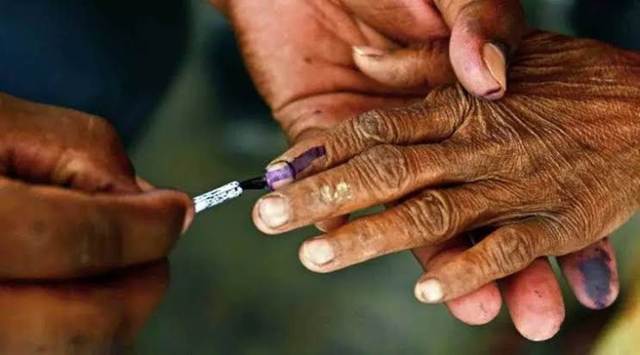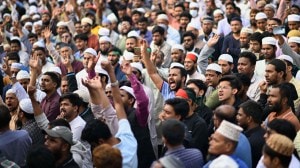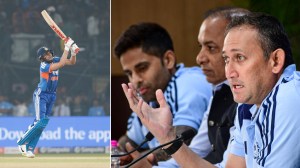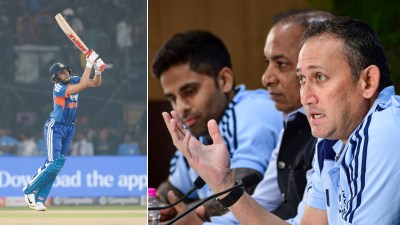In a move that ties in with the idea of simultaneous elections in the country, the Prime Minister’s Office (PMO), earlier this month, held a meeting to discuss the possibility of preparing a common voters’ list for elections to all local bodies, state assemblies and Lok Sabha.
The meeting on August 13, chaired by PK Mishra, Principal Secretary to PM, discussed two options. First, a constitutional amendment to Articles 243K and 243ZA that would make it mandatory to have a single electoral roll for all elections in the country. Second, to persuade the state governments to tweak their respective laws and adopt the Election Commission’s (EC) voters list for municipal and panchayat polls.

Sources said Cabinet Secretary Rajiv Gauba, Legislative Secretary G Narayana Raju, Panchayati Raj Secretary Sunil Kumar and three representatives of the EC, including Secretary-General Umesh Sinha, attended the discussion.
Explained: Why there are different voters lists, and why the government wants a Common Electoral Roll
Articles 243K and 243ZA deal with elections to panchayats and municipalities in the states. These give the power of superintendence, direction and control of preparation of electoral rolls and the conduct of these elections to the State Election Commission (SEC).
ExplainedThe case for joint polls
The idea of simultaneous elections has been around for a while, and the BJP is all for it saying it will save public money and put to an end frequent elections which disrupt governance in poll-bound states. Last year, the government announced that a committee on ‘One Nation One Election’ would be constituted to work on the idea and submit a report to the Prime Minister
On the other hand, Article 324(1) of the Constitution empowers the EC to supervise, direct, and control the preparation and revision of electoral rolls for all the elections to Parliament and state legislatures. In other words, the SECs are free to prepare their own electoral rolls for local body elections, and this exercise does not have to be coordinated with the EC.
Currently, a majority of the states use the EC’s voters list, instead of their own, to elect their municipalities and panchayats. However, Uttar Pradesh, Uttarakhand, Odisha, Assam, Madhya Pradesh, Kerala, Odisha, Assam, Arunachal Pradesh, Nagaland and the Union Territory of Jammu and Kashmir have their own electoral rolls for local body polls.
Explained: What purpose would simultaneous polls serve?
Story continues below this ad
Among the two options discussed at the PMO meeting chaired by Mishra, sources said Sunil Kumar was in favour of persuading the remaining states to adopt EC’s voters list for local body elections. The meeting is learned to have ended with Mishra asking the Cabinet Secretary to consult the states and suggest the next step in a month.
The common electoral roll is among the promises made by the BJP in its manifesto for the Lok Sabha elections last year. It ties in with the party’s commitment to hold elections simultaneously to the Lok Sabha, state assemblies and local bodies, which is also mentioned in the manifesto.
However, the pitch for a single voters list is not new. The Law Commission recommended it in its 255th report in 2015. The EC too adopted a similar stance in 1999 and 2004. It had noted that the non-conformity of preparation of electoral rolls by the EC and the SECs causes duplication of the same task between two different agencies. Further, the EC pointed out that it adds to the confusion among voters, since they may find their names present in one roll, but absent in another.
Opinion | Modi’s slogan of One Nation, One Election is the new distracting tactic
Story continues below this ad
The incumbent government has pitched a common electoral roll and simultaneous elections as a way to save an enormous amount of effort and expenditure.
A former Chief Election Commissioner, who spoke to The Indian Express on the condition of anonymity, agreed that a common electoral roll would save the exchequer money and the election conducting agencies the effort. However, he pointed out that the change would require a massive consensus-building exercise, which may not be easy given the suspicion between the states and the centre.
Explained: PM Narendra Modi calls for ‘One Nation, One Election’. What does this idea mean?
“Having a common electoral roll doesn’t end with convincing the state governments to adopt EC’s voters list. The boundaries of the EC’s polling station may not necessarily match that of the wards. So the EC’s voters list has to be fashioned in a way to fit the SEC’s wards. There are digital tools that can be designed to facilitate that,” the former CEC said.









